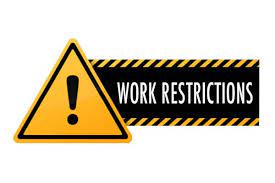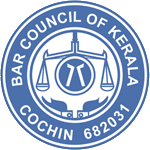Restrictions on other employment!

A NOTE OF CAUTION RESTRICTION ON OTHER EMPLOYMENTPart VI Chapter II Sec. 7, Bar council of India Rules Section Vll- Restriction on other Employments 1. Section 47. An advocate shall not personally engage in any business; but he may be a sleeping partner in a firm doing business provided that in the opinion of the appropriate State Bar Council, the nature of the business is not inconsistent with the dignity of the profession.Section 48. An Advocate may be Director or Chairman of the Board of Directors of a Company with or without any ordinarily sitting fee, provided none of his duties are of an executive character. An advocate shall not be a Managing Director or a Secretary of any Company.2. An advocate shall not be a full-time salaried employee of any person, government, firm, corporation or concern, so long as he continues to practice, and shall, on taking up any such employment, intimate the fact to the Bar Council on whose roll his name appears and shall thereupon cease to practice as an advocate so long as he continues in such employment.Nothing in this rule shall apply to a Law Officer of the Central Government of a State or any Public Corporation or body constituted by State who is entitled to be enrolled under the rules of his State Bar Council made under Section 28(2) (d) read with Section 24 (1) (e) of the Act despite his being a full time salaried employee. Law Officer for the purpose of these Rules means a person who is designated by the terms of his appointment, and who, by the said terms, is required to act and/or plead in Courts on behalf of his employer. 3 An Advocate who has inherited, or succeeded by survivor ship to a family business may continue it, but may not personally participate in the management thereof. He may continue to hold a share with others in any business which has descended to him by survivorship of inheritance or by will, provided he does not personally participate in the management thereof. 4 An Advocate may review parliamentary Bills for a remuneration, edit legal text books at a salary, do press vetting for newspapers, coach pupils for legal examination, set and examine question papers; and subject to the rules against advertising and full-time employment, engage in broadcasting, journalism, lecturing and teaching subjects both legal and non-legal. 5. Nothing in these rules shall prevent an advocate from accepting after obtaining the consent of the State Bar Council, part-time employment provided that in the opinion of the State Bar Council, the nature of the employment does not conflict with his professional work and is not inconsistent with the dignity of the profession. This rule shall be subject to such directives if any as may be issued by the Bar Council of India from time to time.
Professional Etiquette

Professional Conduct and Etiquette…… NOW A WORD ABOUT WHAT AFTER THE ENROLMENT AS AN ADVOCATEYou would naturally be anxious to know the ought and ought not after you have enrolled as an advocate? Let us, therefore, tell you something about the standards of Professional Conduct and Etiquette. Standards of Professional Conduct and EtiquettePart VI chapter II – Bar council of India Rules ( Rules under Section 49(1)(c) of the Advocates Act r/w the proviso thereto. PREAMBLEAn advocate shall, at all times, comport, himself in a manner befitting his status as an officer of the Court, a privileged member of the community, and a gentleman, bearing in mind that what may be lawful and moral for a person who is not a member of the Bar, or for a member of the Bar in his non-professional capacity may still be improper for an Advocate. Without prejudice to the generality of the foregoing obligation, an Advocate shall fearlessly uphold the interests of his client and in his conduct conform to the rules hereinafter mentioned both in letter and in spirit. The rules hereafter mentioned contain canons of conduct and etiquette adopted as general guides: yet the specific mention thereof shall be constructed as a denial of the existence of other equally imperative though not specifically mentioned. SECTION – 1 DUTY TO THE COURT1. An advocate shall, during the presentation of his case and while otherwise acting before a Court, conduct himself with dignity and self-respect. He shall not be servile and whenever there is proper ground for serious complaint against a judicial officer, it shall be his right and duty to submit his grievance to proper authorities.2. An Advocate shall maintain towards the Courts a respectful attitude, bearing in mind that the dignity of the judicial officer is essential for the survival of a free community.3. An Advocate shall not influence the decision of a Court by any illegal or improper means. Private communications with a judge relating to a pending case are forbidden.4. An Advocate shall use his best efforts to restrain and prevent his client from resorting to sharp or unfair practices or from doing anything in relation to the Court, opposing counsel or parties which the Advocate himself ought not to do. An Advocate shall refuse to represent the client who persists in such improper conduct. He shall not consider himself if a mere mouth piece of the client, and shall exercise his own judgement in the use of restrained language in correspondence, avoiding scurrious attacks in pleading, and using intemperate language during arguments in Court.5. An Advocate shall appear in Court at all times only in the prescribed dress, and his appearance shall always be presentable.6. An Advocate shall not enter appearance, act plead or practice in any way before a Court, Tribunal or Authority mentioned in Section 30 of the Act, if the sole or any member thereof is related to the Advocate as father, grandfather, son, grand-son, uncle, brother, nephew, first cousin, husband, wife, mother, daughter, sister, aunt, niece, father-in-law, mother-in law, son-in-law, brother-in-law, daughter-in-law. For the purposes of this Rule, Court shall mean, a Court, bench, Tribunal in which above mentioned relation of the Advocate is a judge, Member or the Presiding Officer.7. An Advocate shall not wear bands or gown in public places other than in Courts except on such ceremonial occasions and at such places as the Bar Council of India or the Court may prescribe.8. An Advocate shall not appear in or before any Court or Tribunal or any other authority for or against an organization or an institution, society or corporation, if he is a member of the Executive Committee of such organization or institution or society or corporation.” Executive Committee”, by whatever name it may be called, shall include any Committee or body of person which, for the time being, is vested with the general management of the affairs of the organization or institution, society or corporation:Provided that this rule shall not apply to such a member appearing as “amicus curiae” or without a fee in a matter affecting the affairs of a Bar Council, incorporated law Society or a Bar Association.9. An Advocate should not act or plead in any matter in which he is himself pecuniarily interested.ILLUSTRATIONI. He should not act in bankruptcy petition when he himself is also a creditor of the bankrupt.II. He should not accept a brief from a company of which he is a director.10. An Advocate shall not stand as a surety, or certify the soundness of a surety, for his client required for the purpose of any legal proceedings.SECTION – 2 DUTY TO THE CLIENT11. An advocate is bound to accept any brief in the Courts or Tribunals or before any other authority in or before which he profess to practice at a fee consistent with his standing at the Bar and the nature of the case. Special circumstances may justify his refusal to accept a particular brief.12. An Advocate shall not ordinarily withdraw from engagements one accepted, without sufficient cause and unless reasonable and sufficient notice is given to the client. Upon his withdrawal from a case, he shall refund such a part of the fees as has not been earned.13. An Advocate should not accept a brief or appear in a case in which he has reason to believe that he will be a witness and if being engaged in a case, it becomes apparent that he is a witness on a material question of fact, he should not continue to appear as an Advocate if he can retire without jeopardising his client’s interest.14. An Advocate shall at the commencement of his engagement and during the continuance thereof, make all such full and fraud disclosures to his client relating to his connection with the parties and any interest in or about the controversy as are likely to affect his client’s judgement in either engaging him or continue the engagement.15. It shall be the duty of an Advocate fearlessly to
